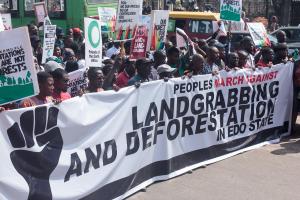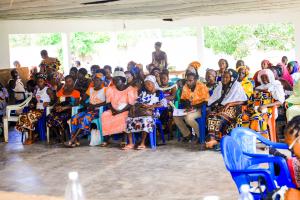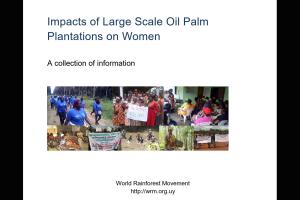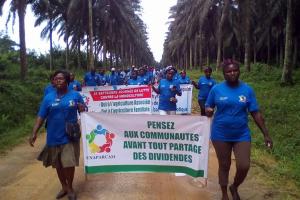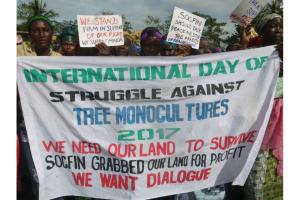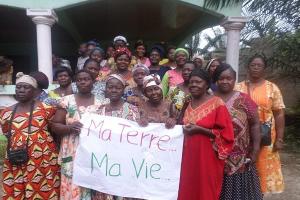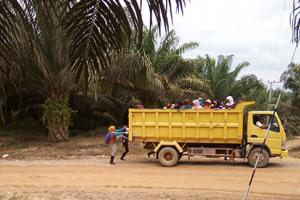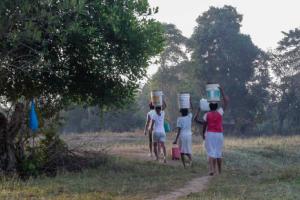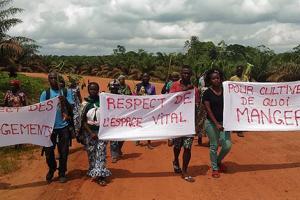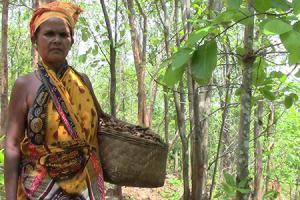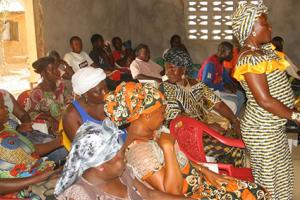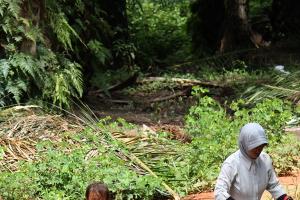Women in Resistance
When forests are destroyed, women in forest-dependent communities are hit hard: Their living conditions are particularly precarious; and providing food, medicine, materials and clean water becomes even harder. The traditional knowledge and wisdom that women pass down from generation to generation are also at risk. That is why women are often on the frontlines of the resistance to forest destruction.
Interview with Hajaratu Abdullahi from Community Forest Watch in Nigeria who talks about the hardship and misery that the palm oil company Okomu Oil, subsidiary of global palm oil company SocFin, is bringing to communities like hers in Nigeria's Edo state
Dekel Oil’s false promises lure villagers into dangerous oil palm growing contracts in Cote d’Ivoire
Land owners in Cote d'Ivoire are trapped in contracts with Dekel Oil, a company that made false promises arguing villagers would become rich by signing contracts to let oil palm monocultures on their land.
A Collection of Articles Published in the WRM Bulletin on the issue of Resistance, Women and the Impacts of Plantations.
"12 Replies to 12 Lies about Oil Palm Monoculture Plantations" has been updated. The publication now includes a chapter about how oil palm companies lie when they say they respect women's rights.
From rapes, forced body searches and searches of private spaces, to the risk of losing their lives: this article calls on us not to be accomplices to the violence women living around tree plantations in Cameroon suffer.
The expansion of oil palm plantations in Indonesia has turned women into landless food buyers and cheap labour, with no adequate safety and health protection, for the plantation companies. (Available in Indonesian).
Contamination of water sources, deplorable working conditions, and sexual blackmail in exchange for work, are some of the kinds of violence against women living in and around oil palm plantations in Guatemala and Colombia.
A woman from the village of Mbonjo 1, Cameroon, which has witnessed the impact of industrial palm oil plantations and the constant presence of the military, calls for international solidarity and protection of right to life and freedom.
India’s programme to compensate for the destruction of forests for development projects is routinely setting up monoculture tree plantations on community commons. Women, who are mostly affected, are at the centre of its resistance.
The voices and stories of forest-dependent women are often rejected, unheard or silenced, which makes it easier for companies to grab community land. But what happens when they start to raise their voices?
Women suffer many types of violence committed by oil palm plantations companies’ employers, security forces, police and military, which subsequently reinforce patriarchy and their roles and relations within society in general. (Available in Indonesian).
